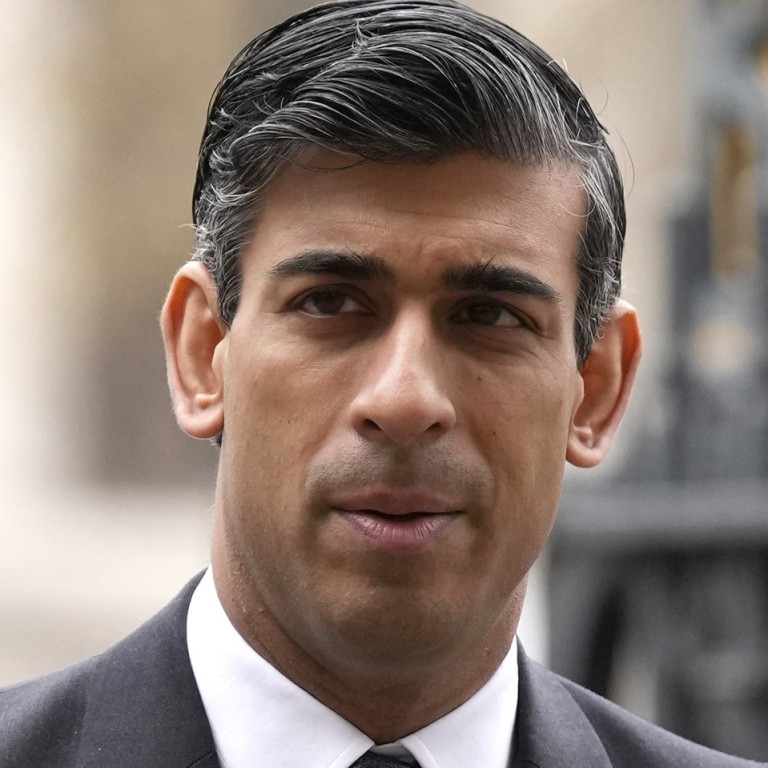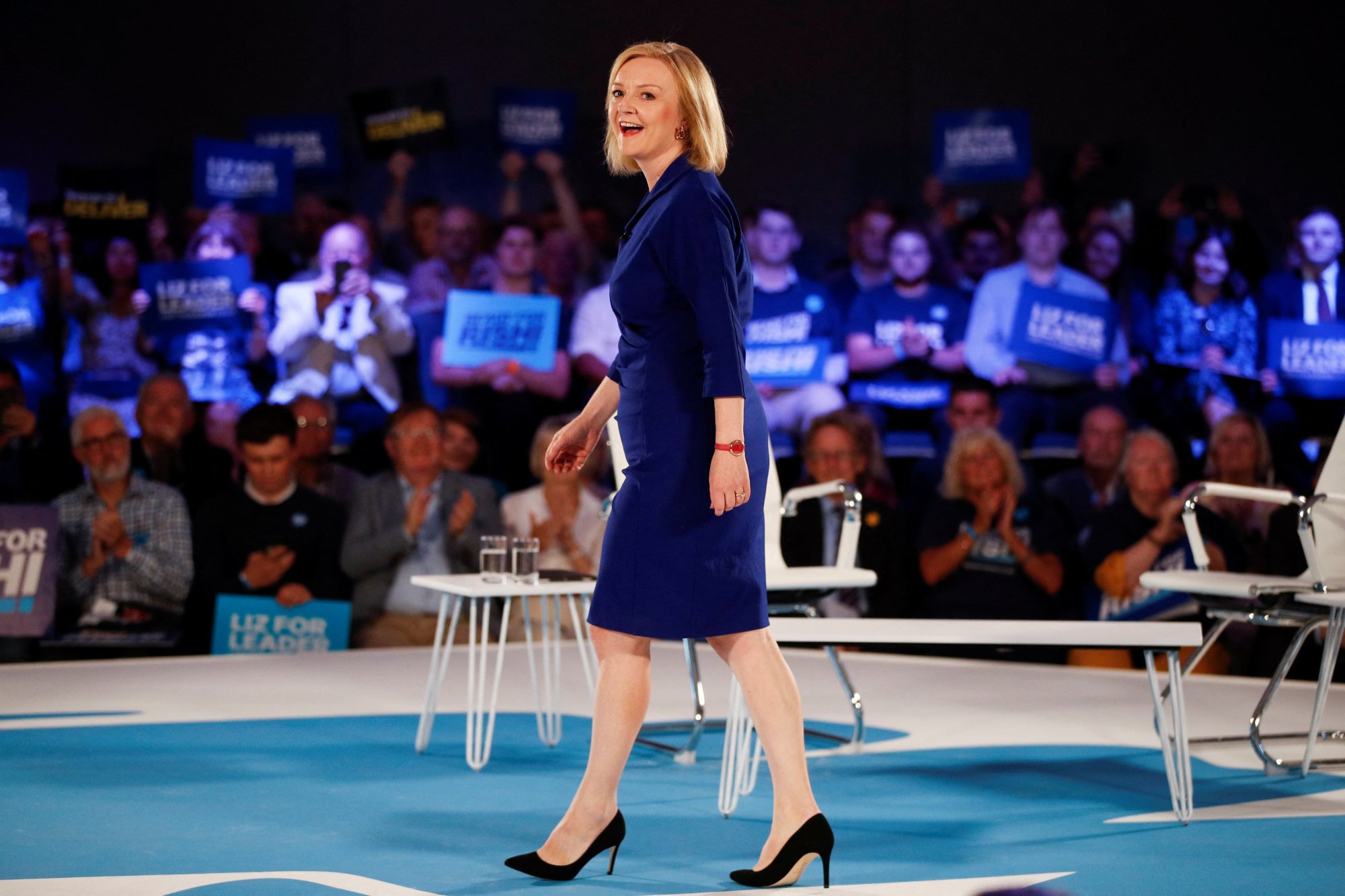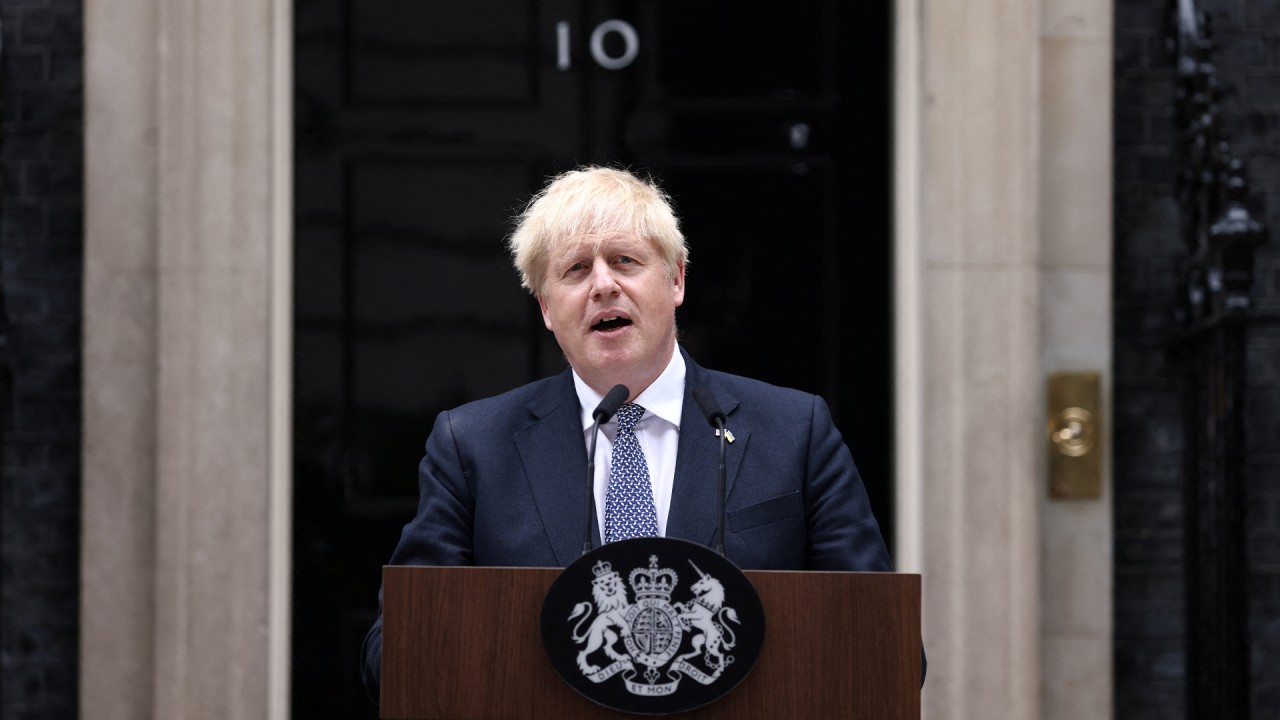
Sunak vs Truss: is race a factor in the UK leadership race?
- Rishi Sunak trails Liz Truss in the race to be Conservative Party leader and UK prime minister
- Some supporters say Indian-origin Sunak is a victim of ‘latent racism’ within his own party
Come September 5, the UK will either get its first prime minister of colour, Rishi Sunak, or third woman prime minister, Liz Truss.
The decision won’t be made by an ethnically diverse electorate, but by 180,000 or so Conservative Party members, 97 per cent of whom are white.
A victory for Sunak would be historic, as he would be the first person of South Asian heritage to lead the UK, the world’s fifth-biggest economy.
But the 42-year-old former chancellor of the exchequer trails rival Truss, the UK’s foreign secretary, who this week held a 34-point lead over him in a YouGov survey of party members to replace Boris Johnson as leader.
Johnson was forced to announce his resignation on July 7 after a series of scandals and missteps.
Sunak said it’s still “early days” in the leadership contest, and has pitched his patriotic credentials by pledging to treat anyone who “vilifies” Britain as a potential terrorist.
In Britain, talk of Johnson’s return to No 10 before he’s even left
He has promised to focus on “rooting out those who are vocal in their hatred of our country” and clamp down on organisations promoting Islamic extremism.
Sunak also pledged to expand the controversial policy of deterring asylum seekers by sending them for processing in Rwanda.
While Sunak has made much of his immigrant family background – his doctor father and pharmacist mother came to the UK from East Africa in the 1960s – few except for social media provocateurs have publicly made an issue of Sunak’s Hindu religion and Indian heritage in this leadership contest.
“I absolutely don’t think that [racism] is a factor in anyone’s decision,” Sunak told The Telegraph in response to some of his supporters attributing his polling performance to “latent racism” among Tory members. “I just don’t think that’s right”.

That was perhaps an attempt by Sunak to cast the Conservative Party as a diverse one, while also appealing to its members to choose him as leader for a UK first.
“It’ll be a problem for some of them – but in my honest opinion it won’t be the primary reason if and when he loses,” said Tim Bale, a professor of politics at Queen Mary University of London.
Sunak, a former hedge fund manager has been criticised for holding onto his US Green Card while finance minister, for owning a penthouse in California, for wearing Prada shoes, and for the fact that his wife, Akshata Murthy, daughter of the founder of Indian technology giant Infosys, has a net worth of about US$1.2 billion.
The Tory rising star represents the constituency of Richmond in Yorkshire, northern England – a safe Conservative seat he took over in 2015 from former party leader and foreign secretary William Hague, who has described him as “exceptional”.
Divisive Thatcher looms over UK leadership race
“Rishi Sunak, by all conventional standards, has credibility as a leader and polls indicate he is the only Tory leader who may defeat Labour in the next general elections,” said Dibyesh Anand, head of the school of social sciences at the University of Westminster.
“However, the large-scale mobilisation of various wings of Conservative Party against him in favour of Liz Truss reflects the limits that racial minorities face.
“The constant questioning of Sunak for his wife’s wealth and his privileges is racial resentment masking as class envy.”
One of the biggest surprises in the leadership race was that of the eight original candidates, half were people of colour.

Indeed, it was the Conservative Party in the 19th century that had Britain’s first – and to date, last – ethnic minority leader: Benjamin Disraeli, who had Sephardic Jewish roots.
Disraeli was the founder of One Nation Conservatism and also one of the politicians most associated with the expansion of the British Empire.
“The British Empire could not have functioned without black and brown administrators, and Sunak is clearly of that mould,” said Kehinde Andrews, a professor of black studies at Birmingham University, and author of the book The New Age of Empire: How Racism and Colonialism Still Rule the World.
UK finance minister and wife make super-rich list, after tax scrutiny
“This is the perfect case of diversity being the enemy of anti-racism because it offers a PR boost to a racist government.”
While traditionally the opposition Labour Party has been seen as the supporter of immigrants, over recent years affluent Chinese and Indian voters in particular have moved to the Conservative Party in greater numbers.
“While the Tory leadership contest can be seen as reflecting multicultural Britain, what is significant is that most contenders who are not white adopted a very hawkish approach that is anti-immigrant and anti-progressive on race, gender and sexuality,” said Anand.
Sunak’s biggest problem is perhaps that his resignation helped deal a final blow to scandal-ridden Johnson.
“The grass roots won’t forget he is the Judas who betrayed the boss,” a party activist of Chinese heritage said on the condition of anonymity.
Sunak suffered a setback on Wednesday when his friend Sajid Javid, the former health secretary who resigned from Johnson’s cabinet just 10 minutes before Sunak, came out in support of Truss.
Javid said Sunak’s economic policies, focusing on curbing the UK’s soaring inflation as a priority rather than tax cuts, was the reason.
For some political commentators, Sunak’s problem could be that he is not populist enough and has not played into the culture wars that have raged in the UK following Brexit and the Black Lives Matter movement.
Sunak has always supported leaving the European Union, whereas Truss voted to remain.
Race for PM unlikely to signal shift in Sino-British relations
Yet it is Truss who has somehow managed to capture the support of Brexiteers.
“There was a huge difference in the Brexit vote,” said Eric Kaufmann, a professor of politics at Birkbeck College, University of London.
“Those who voted for a global Britain are a much smaller number. If you look at the data, immigration was by far the most stringent driver.
“Truss has made more patriotic noises. It’s all about branding. Sunak has come into it a bit late. He should have been off the mark a bit quicker.”
Or is it that Britain simply is not yet ready to be led by a politician of Indian origin, albeit a Conservative who promises to get tough on immigration?
Additional reporting by Agence France-Presse


